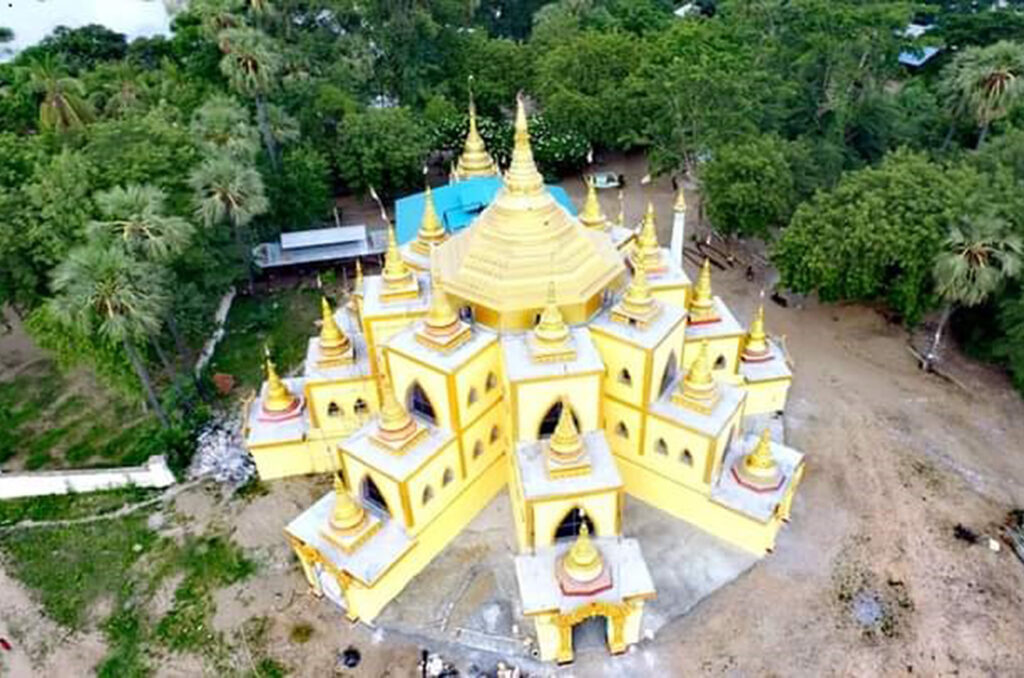07 Jan
Pakokku Township of Magway Region is recognized as the Western Ayeyar City. The well-known pagodas such as 900-year old Thiho Shin pagoda, Shwegu pagoda, Shwe Mu Htaw pagoda and Phaung Taw Oo pagoda are concentrated there. Although the domestic tours are suspended across the country during COVID-19 pandemic, the well-wishers including those living in foreign countries donate money for the construction of pagoda called Aung Su Pyae Kyaung Shit-thaung-lay-htaung pagoda located about two miles from Pakokku.
The pagoda was first called 31-bone (31 realms of existence) Kyaw Lon Aung and only 30 per cent of construction completed over 30 years. It was rebuilt in 2003 by Aggamahapandita Aggamahasddhammajotikadhaja Abidhajamaharatthaguru Sayadaw Baddhantavisara, Patron of Mahavithutaryama Monastery of Pakokku Township and renamed as Su Pyae Kyaung Shit-thaung-lay-htaung pagoda. The famous architects were hired to restart the construction in 2017. The pagoda with artworks of the Bagan era is 75ft in height and surrounded by 24 smaller zedis outside.
There are 32 chambers inside the pagoda and all are depicted with the history of Buddha and picturesque wall paintings.
The whole body of pagoda can be seen from a certain distance. The 89 years old Sayadaw Bhadanta Visara who leads the construction of pagoda is also Ovadacariya Sayadaw for Sugyi Pan Sasana and Saint San Myint Pariyatti (Nunnery school). Sayadaw makes efforts in building meditation centres and religious buildings. The main aim of Sayadaw is to receive propagation of Sasana and provide information for the rural populace.
It will cost K1240,000 per small zedis and K5,400 per buddha statue and K54,000 per sitting buddha statue. The pagoda board of trustee receives between K2.5 million and K9 million of donation daily during COVID-19.
Those wanting to donate cash distributions for construction of pagoda can also donate as much as they can. Currently, two-third of construction works are being completed under the management of Sayadaw.
Salai Ko Kee (IPRD) (Translated by Khine Thazin Han)


